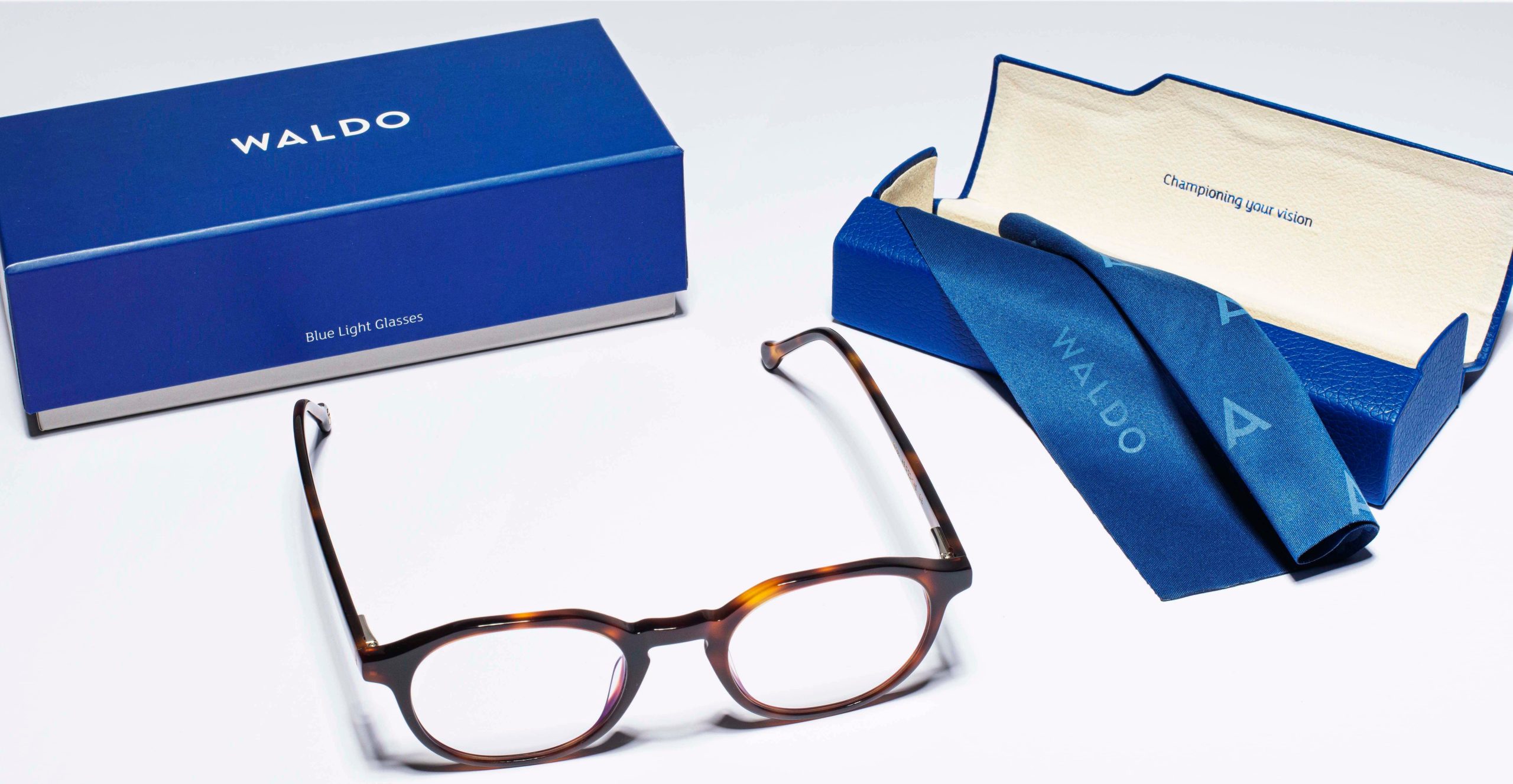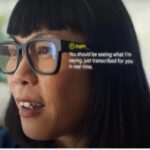
WALDO, a global e-commerce brand that delivers high quality daily contact lenses at an affordable … [+]
As the granddaughter of acclaimed South African wildlife photographer, Gerald Hinde, as well as an avid wildlife photographer herself (winning BBC’s Wildlife Photographer of the Year Award when she was just 12 years old), Ashleigh Hinde understood the role our eyes play in how we see the world from an early age.
Ashleigh began wearing contacts at 11 years old and after nearly two decades, spent across three continents, she grew frustrated with the quality of and massive markups on contact lenses sold by large pharmaceutical companies. So in 2017, inspired to drive innovation in the industry, she dove head first into the world of entrepreneurship to found WALDO, a global e-commerce brand that delivers high quality daily contact lenses at an affordable price straight to the consumer via an innovative digital platform.
Since launching in 2017, WALDO has grown by nearly 500% to become a global e-commerce brand, shipping more than 50 million lenses to date. With more products in the pipeline and innovative technological developments underway, as well as an insightful and philanthropic business philosophy, WALDO is committed to furthering the conversation around eye health.
As part of my research on purpose driven businesses, I had the opportunity to sit down with Ashleigh and learn more about WALDO, and her very personal mission to promote positive vision and fight avoidable blindness.
Christopher Marquis: Tell me about your background and what brought you to the eyecare industry?
Ashleigh Hinde: My mom has been blind in one eye, a result of an untreated squint, for many years and has had a severe Astigmatism in the other eye since she was born. I’ve seen firsthand how vision loss has affected her, and how difficult it’s been to navigate the eye care system. In parallel, my grandfather is an acclaimed South African wildlife photographer so I spent a lot of my childhood behind a camera. These life experiences really gave me such an appreciation for vision and understanding of the unique role our eyes play in how we see the world.
MORE FOR YOU
I started wearing contacts at 11 years old and after nearly two decades, spent across three continents, I was frustrated with massive markups on contact lenses and how that prevented me from being able to wear high quality daily lenses. Fundamentally, a “needed” product shouldn’t be sold at a luxury price point.
After graduating with a degree in organizational psychology, commercial law, media and marketing from the University of Cape Town, I held various roles in marketing and corporate strategy throughout Europe and the UK, before deciding to take a year away from corporate life to pursue my master’s degree at Harvard University. It was there that I developed a specialism in direct-to-consumer business and was inspired to disrupt the eye care industry, making vision both accessible and relatable.
Marquis: WALDO is seen as “the Casper of the eye industry.” Tell me more about your mission and how WALDO works?
Ashleigh Hinde, founder and CEO of WALDO
Hinde: WALDO is an innovative eyecare brand that wants to change the way people feel about buying contact lenses and the ocular health category overall but it started out of a simple need: I was studying one evening and my eyes were burning from a long day of staring at screens. As I took out my contacts, I realized I only had one pair of lenses left and went online to buy more. I was surprised at the cost of them and found the experience confusing so I started wondering more about my contact lenses: their cost, where they were made, the delivery cycle and why the price differed so dramatically by channel and country. As it turns out, contact lenses have really complicated distribution channels and greedily high margins are taken at every point, meaning that lens wearers, generally, lose out to big pharma. It was then that I decided to dive head first into entrepreneurship and set out to create the highest quality contacts, without the hassle or price tag.
I created WALDO to be an innovative and accessible digital-first eyecare company that promoted the power of positive vision and built relationships with our customers directly rather than through distributors. Today, we sell high quality daily contact lenses and other eye care products through a bespoke subscription service that is more affordable than the big brands. Our Hydra Boost Plus daily contact lenses are designed for optimum comfort and moisture, and are delivered to customers’ doors within 48 hours, in compact, chic and recyclable packaging.
It is our belief that good eye health begins at the eye doctors, and we also want to change the way people think about the industry. We incorporate eye care professionals into our brand through our team of eye care professionals who serve as advisors as well as our doctor partnership program. Doctors are involved every step of the way, fitting the lens in-office and reviewing prescription orders placed by their patients. In addition to providing a lens that eye care professionals can feel good about, we hope that WALDO helps spearhead change in patient care, sending people to the eye doctors regardless of their vision. So many people skip their annual visits and an eye exam is so important to not only help with vision and prevent avoidable blindness but also it can do so much more for your overall health.
Marquis: I know a big part of WALDO’s mission is giving back. Can you tell me more about how WALDO is working to address avoidable blindness?
Hinde: Poor vision is the world’s leading disability, impacting nearly 2.2 billion people globally. The compounding effects of this are tragic as it impacts an individual’s ability to be artisanal and sustain their livelihood, and their ability to teach their children, and puts a major burden on the individual and the community as a whole, and so much of this could be avoided through quality eye care. As such, our mission with Sightsavers is to eliminate avoidable blindness and restore the gift of sight.
Marquis: How did you come up with the “Buy One, Give Vision” program? “Buy One, Give One” programs have come under a lot of criticism for just treating symptoms not root causes and also disrupting local business ecosystems. So why do you think that is the right approach and how did you design your program to avoid these issues?
Hinde: The impact of unaddressed poor vision is far-reaching and impacts a community’s economic stability, educational development and mortality rate. At the core of WALDO’s mission is to make eyecare accessible for all and we are so proud to make this a reality through our work with Sightsavers.
The Buy One, Give Vision program means that in exchange for specific items our customers buy, WALDO provides funds for vital health work that Sightsavers carries out. Sightsavers works with in-country suppliers to provide consumables for those who need them. We do not donate the glasses/drops or other items themselves, but help fund the items and activities that Sightsavers uses for its eye health and neglected tropical diseases (NTD) programs in Africa and Asia. For example:
· For every pair of blue light glasses our customers buy, we fund the cost of a pair of prescription glasses in the countries where Sightsavers work.
· For every purchase of hydration drops, we donate the cost of a sight-saving trachoma treatment
· For every annual contact lens subscription bought, we support a cataract operation for someone at risk of blindness.
The idea behind the ‘Buy One, Give Vision’ concept was to provide our customers with the knowledge that their purchases will have a direct impact and make a tangible difference to the lives of people that Sightsavers support.
Marquis: On that note, I understand you’re also working on some technological advancements in this area. What kind of work is WALDO doing to monitor and detect eye disease?
Hinde: At the beginning of the year, WALDO acquired Placid0, an optical tech company (led by Darius Moshfeghi, the Chief of Retina at Stanford), who created a mobile application that addresses all aspects of eye health: vision, quality of life, and other assessments of eye function. With this app, WALDO is providing a product that will objectively scan the cornea through a mobile device, without relying on expensive equipment, and offers the potential to rapidly assess comfort and use imaging for contact lens fitting, as well as look for dry eye, keratoconus and a multitude of other conditions. It will not only lessen the data gap between doctors and patients but also make eye care more accessible, with the ability to bring the tool into remote regions of the world.
This is important because globally the number of people in need of eye care is spiraling. Unless eye health services improve, the number of people who are blind could triple to 115 million by 2050. While ophthalmologists can identify and treat eye diseases earlier and more effectively than ever before, these advances are meaningless if issues go undiagnosed.
Marquis: Since launching in 2017, WALDO has grown by nearly 500% to become a global e-commerce brand, shipping more than 50 million lenses to date. How has the business grown over the past few years and, with the influx of dtc brands launching nationwide, how do you remain competitive?
Hinde: Before externally launching the brand, we focused on ensuring that we had a product of the highest quality, and made sure our suppliers were able to make daily contact lenses of a quality akin to the best on offer.
As we grow, we remain particularly attentive to our 230,000+ customers and their feedback. We made a conscious decision to build a brand and service and pride ourselves on being able to be nimble depending on what our customers want. Our Trustpilot score speaks to this, with over 14,000 positive reviews.
Our focus has also always been on the innovation of our service and products. One such innovation a few years ago was the launch of vitamin contact lenses in the UK, which were the first of their kind. They come in a patented solution with vitamins B6, B12 and E, designed to provide more oxygen to the eyes, resulting in more comfort and less dryness.
Marquis: What are your plans for growing WALDO in the future?
Hinde: We will continue to make high quality eye care accessible, relative to and reflective of modern day lives and lifestyles through innovative products, meaningful partnerships and by working closely with our doctor partners. From day one, the consumer has been at the center of everything that we do and through the launch of the mobile app this year, we will be growing our optical tech platform, further connecting consumers with eye care professionals without friction.







